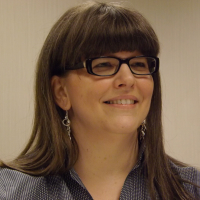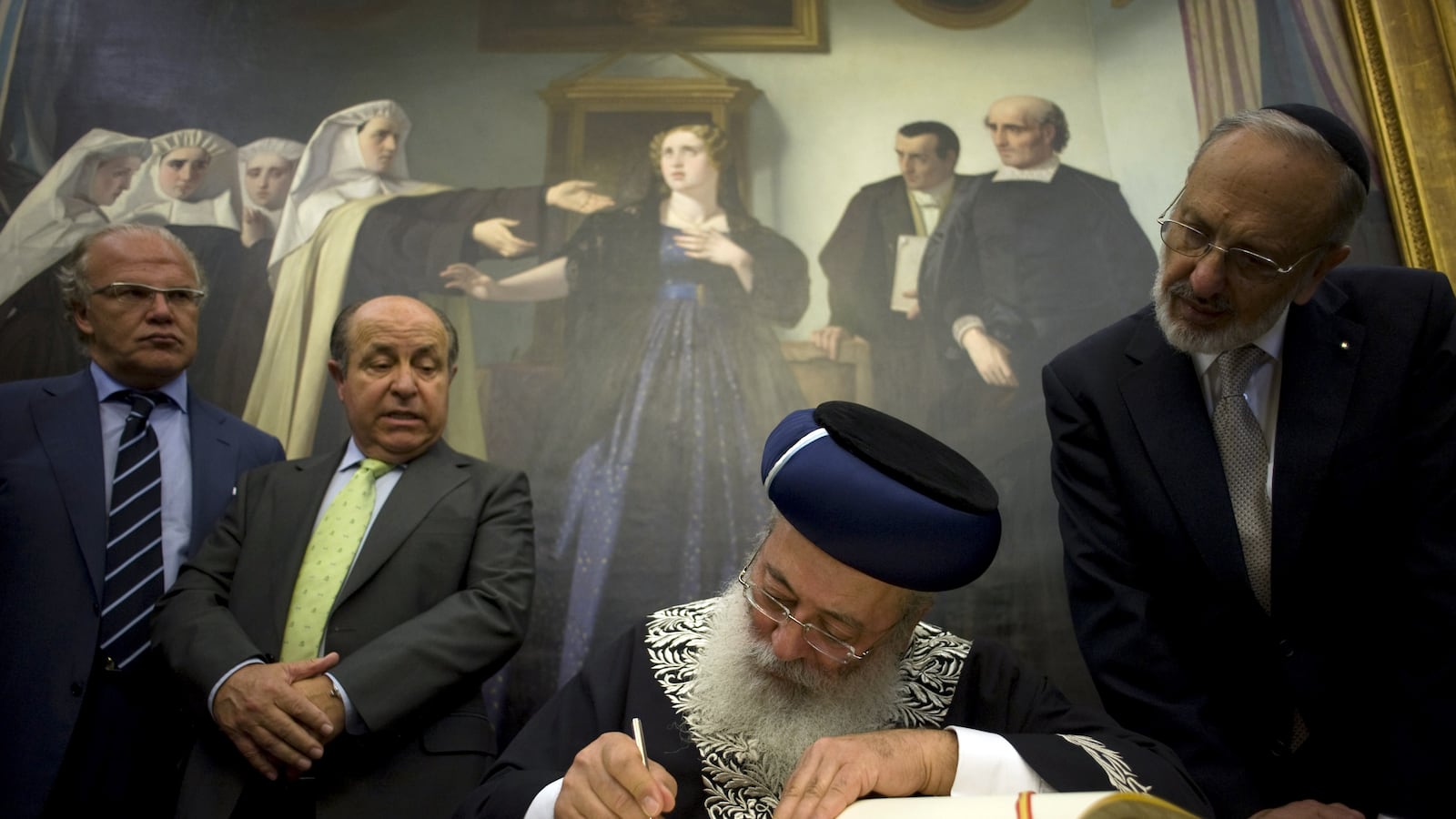The notion of ahavat yisrael, "love for the Jewish people," is lovely, but let’s be frank: As a people, we Jews haven’t all loved each other since roughly the Golden Calf.We’re a people like any other. We split along ideological lines, family lines, class lines—witness the anger emanating from Israel’s ultra-Orthodox over the possibility of state recognition for a small number of non-Orthodox rabbis, or the mere vision of women praying in public (or even riding the bus with men).

And you know what? That’s cool—I don’t much like ultra-Orthodoxy either. I have a lot of very powerful opinions about how that community interprets Scripture and what those interpretations ultimately mean for many of their number. I don’t need them to like me and mine, and I certainly don’t need their approval to know that I’m a good Jew.What’s not cool, however, is that unlike any other Jews, Israel’s ultra-Orthodox actually have the power to legislate and enforce their value judgments. The problem isn’t the Jewish people’s fissures, or the opprobrium of one side for another—the problem is that in the Jewish state, one very narrowly defined community of Jews is paid out of state coffers to lord their version of Judaism over everyone else.
For instance: Israeli ultra-Orthodox Rabbi Shlomo Amar is sufficiently rude and ignorant to have recently written the following about Reform and Conservative Jews:
We hereby express our sorrow and terrible pain over Heaven's defiled honor and over the trampling of the Torah, and the hand given to the uprooters and destroyers of Judaism who have already wrought horrible destruction upon the People of Israel in the Diaspora by causing terrible assimilation and the uprooting of all of the Torah's precepts.
And now they seek recognition in the Land of Israel as well, to be destroyers of the religion who are recognized as clergy. Woe unto us that in our day such haters of the Lord have raised their heads… We declare to the nation and the world: This will not pass!
Yep, that’s us: Haters of the Lord. (So much for ahavat yisrael).
If this were just one cranky old man’s opinion, dayenu—but of course, Rabbi Amar isn’t just any cranky old man. He’s one of Israel’s two chief rabbis. Amar’s salary comes from Israel’s taxpayers, and his official position gives his opinions an outsized weight among the world’s Jews, particularly should they want to move to Israel.
The fact that Amar and folks like him are paid by the government to set the boundaries of what is properly Jewish leads to all manner of hubris, pomposity, and squashing of even the most basic of democratic principals. It allowed ultra-Orthodox Knesset member Moshe Gafni to label Reform and Conservative rabbis “clowns” at last week's parliamentary discussion regarding the government decision to pay 15 such rabbis, and it allowed him to later expel Rabbi Gilad Kariv, director of Israel Movement for Progressive Judaism, from the same meeting, a hearing which was (after all) called to discuss Kariv’s own community.
The fact that the Israeli public pays these Rabbis' salaries is the reason that Jerusalem’s police department went to the trouble of arresting a woman for having the temerity to wear a prayer shawl last Wednesday. It’s also paying for the “emergency meeting” Amar called for tomorrow, to discuss the whole "haters of the Lord have raised their heads" thing.
This is not about disagreement. This is not about interpretation. This is about power. Successive Israeli governments have found it politically expedient to cede ever-greater swathes of decision-making real estate to a minority of Jews who now wield it over the entire international Jewish community as if the world were one big synagogue, and they were the gabbai.
I genuinely don’t care what those men think of me—but I very much care that they have power over me.






